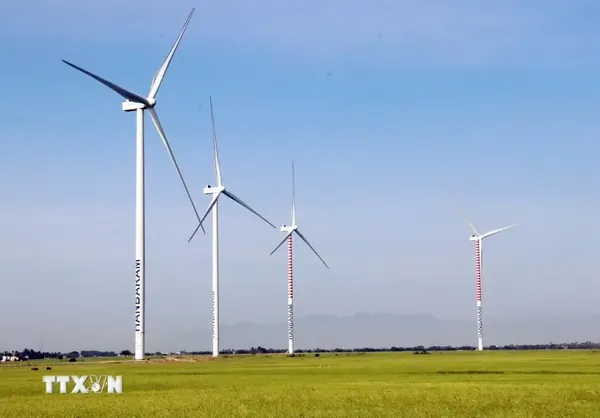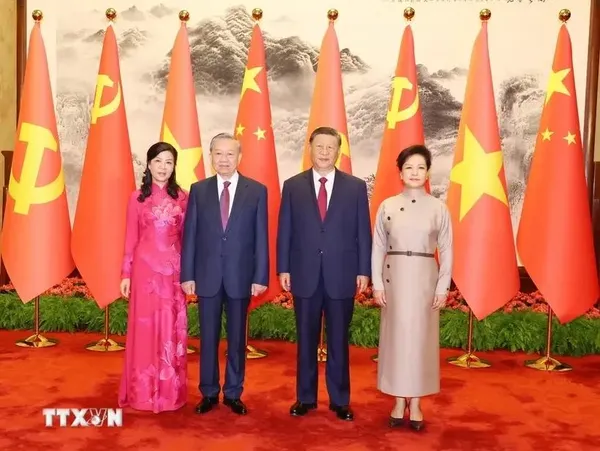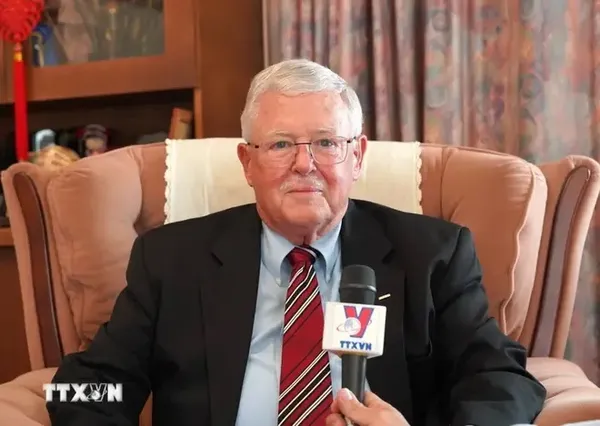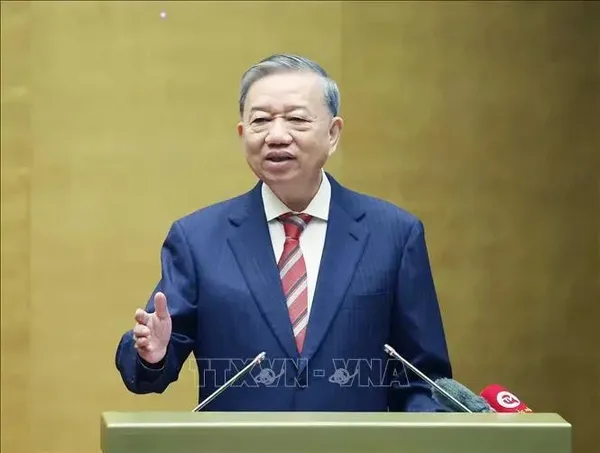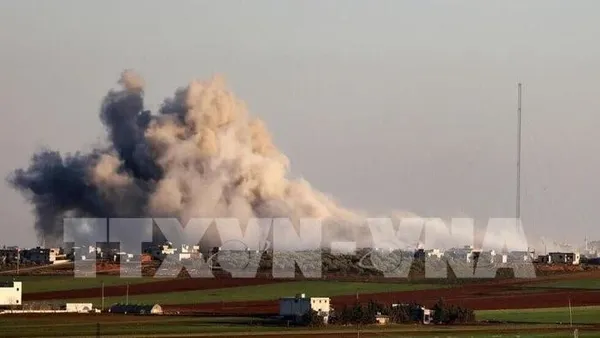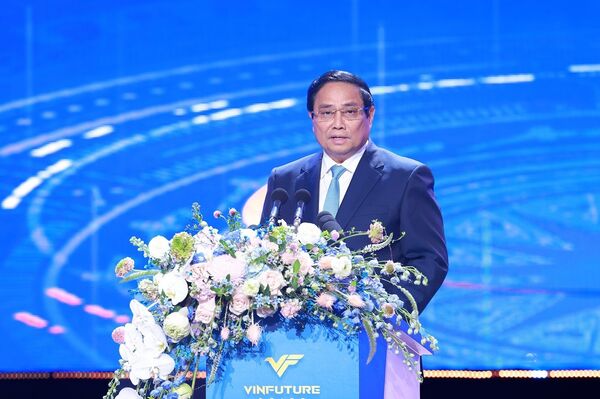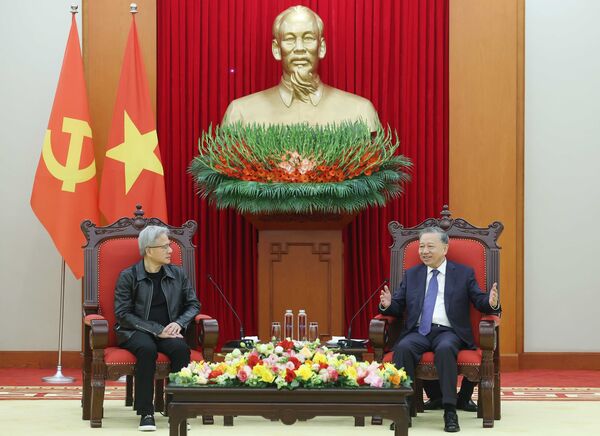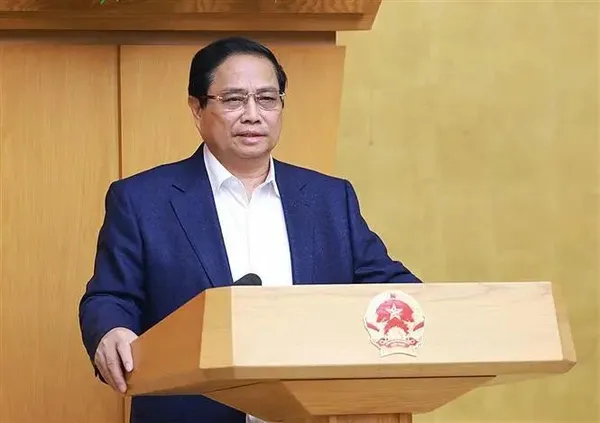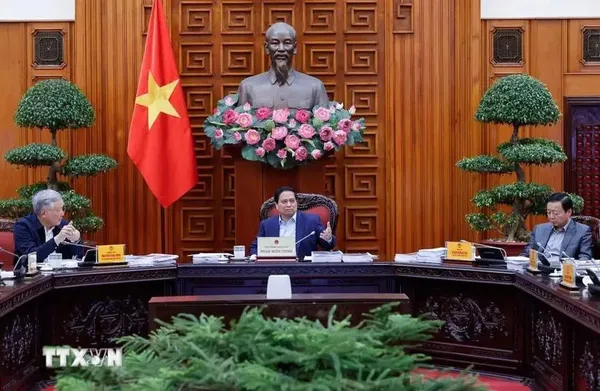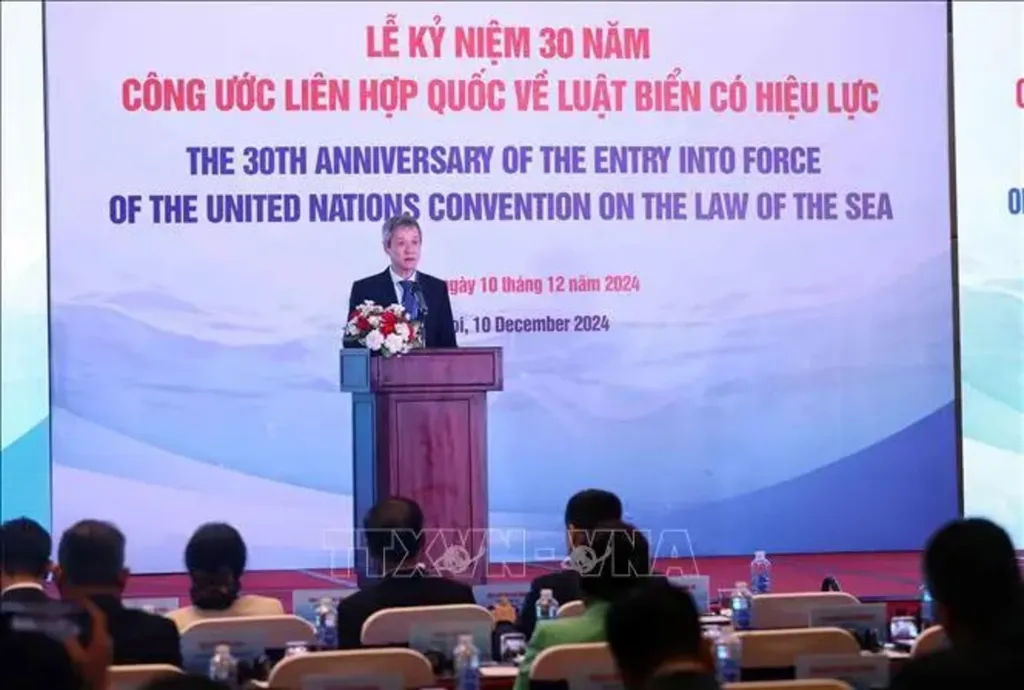 |
| Assistant to the Minister of Foreign Affairs Nguyen Minh Vu speaks at the event. (Photo: VNA) |
Hanoi (VNA) – As a coastal nation with more than 3,260 kilometres of coastline and thousands of islands, Vietnam’s commitment to responsible implementation of the United Nations Convention on the Law of the Sea (UNCLOS) is in line with the country’s thorough foreign policy, stated Assistant to the Minister of Foreign Affairs Nguyen Minh Vu.
Speaking at a ceremony in Hanoi on December 10 to mark the 30th anniversary of the convention coming into effect, Vu affirmed that with the motto of upholding the rule of law, Vietnam continues to advocate for the peaceful settlement of disputes in accordance with international law, including UNCLOS.
Vu noted that the convention, dubbed the "Constitution" of the seas and oceans, officially came into force on November 16, 1994, marking a significant milestone in international maritime law. Over the past three decades, the convention has established a comprehensive legal framework that governs global oceans and seas, covering over 70% of the Earth’s surface. It sets out the rights and obligations of all nations, whether coastal or landlocked, in terms of the use, management, and conservation of marine resources.
Despite evolving challenges, the convention remains a cornerstone of international maritime law, offering a flexible framework to address emerging issues. The United Nations and bodies established under UNCLOS, such as the Conference of States Parties, the International Tribunal for the Law of the Sea, and the International Seabed Authority, have played a critical role in addressing modern challenges in ocean governance, he said.
Vu underlined that with 170 member states today, UNCLOS has become one of the most important legal documents and the most significant achievements in international law of the global community in the 20th century.
The official highlighted Vietnam’s remarkable progress in addressing maritime boundary issues with its neighbours. Key achievements include the 1997 agreement on delimitation of the maritime boundary with Thailand on the Gulf of Thailand - ASEAN’s first maritime delimitation agreement after the convention came into force. Another achievement is a similar agreement with China on the Gulf of Tonkin in 2000. Vietnam also reached agreements with Indonesia in 2003 and 2022 on the delimitation of the continental shelf and exclusive economic zones, contributing to the practical application of UNCLOS in the region.
Beyond bilateral agreements, Vietnam has actively participated in international initiatives within the UNCLOS framework, proposing significant initiatives that have earned global recognition, affirming the country’s growing influence in international maritime forums, particularly within UN processes related to ocean and sea laws, Vu underlined.
Vietnam has served on the International Seabed Authority’s Council, contributing to the work of the International Tribunal for the Law of the Sea. It has also played a key role in the negotiation and early signing of the Agreement on Conservation and Sustainable Use of Marine Biological Diversity of Areas beyond National Jurisdiction (BBNJ Agreement), the latest international document tied to the implementation of UNCLOS. Vietnam has also contributed highly qualified experts to various bodies created under the UNCLOS framework. At the UN, Vietnam co-founded the UNCLOS Group of Friends, which now includes over 100 member countries, to promote the effective implementation of the convention.
At the ceremony, participants highlighted the continued relevance of the convention in settling maritime disputes, protecting the marine environment, and adapting to climate change./.
